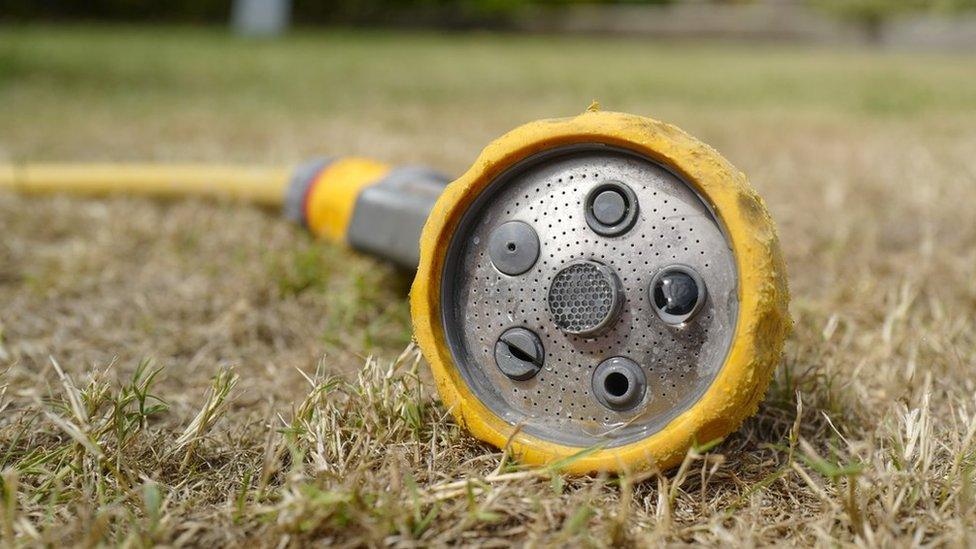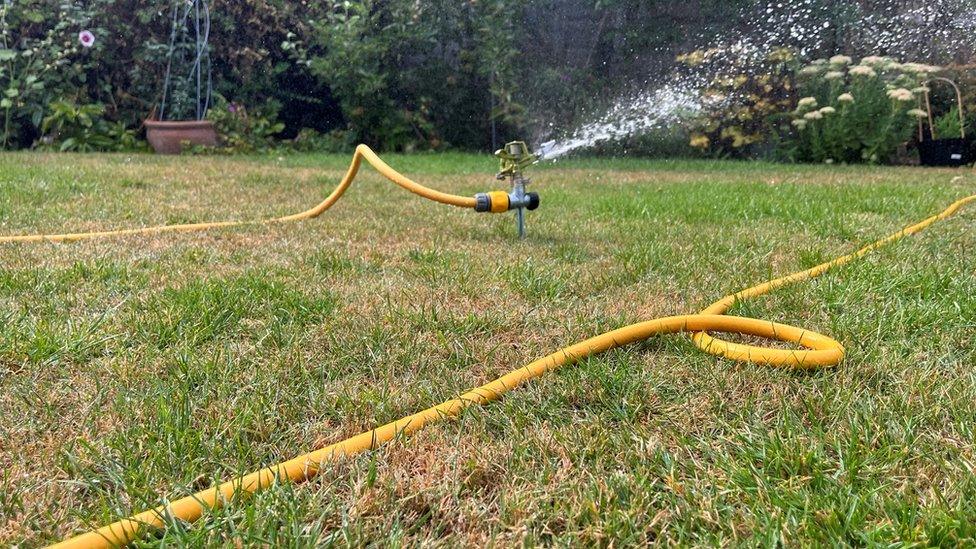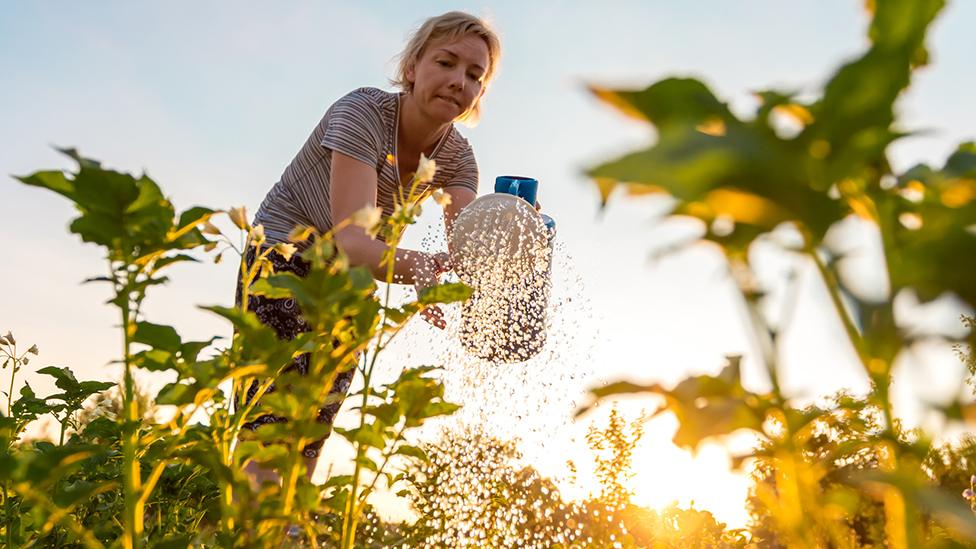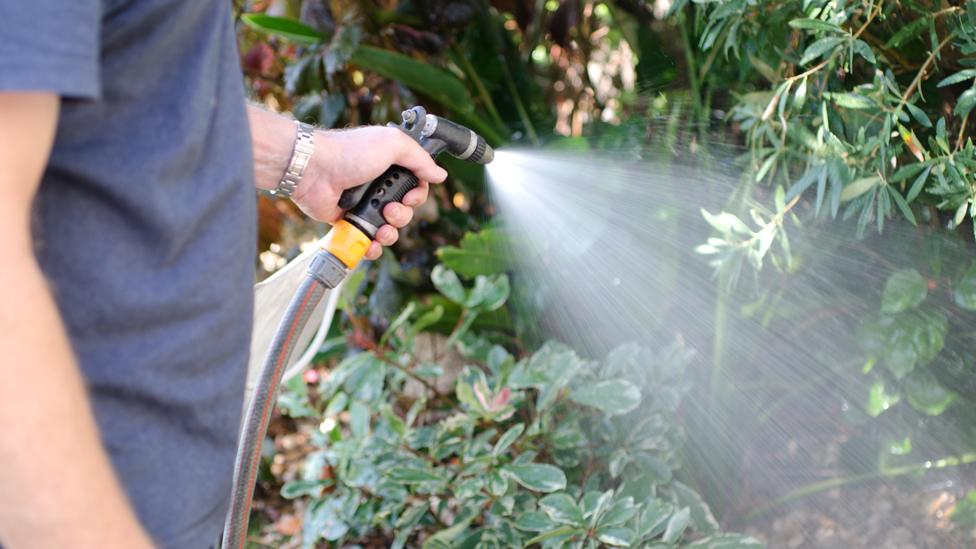South East Water hosepipe ban to stay for ‘foreseeable future’
- Published

The hosepipe ban, imposed on August 12, affects at least one million people
A temporary hosepipe and sprinkler ban will remain in place for the "foreseeable future", South East Water has told the BBC.
The measure, imposed on 12 August, affects at least one million people.
The use of hosepipes to water gardens, clean cars and fill swimming pools is not allowed.
South East Water said while there has been "much welcome rain", the south east of England received less than half of the average rainfall during August.
"Water levels in some of our reservoirs and underground aquifers are currently much lower than normal after the dry, hot, summer led to record-breaking high demand for water," head of water resources at South East Water Lee Dance said.
"We will continue to monitor rainfall through the autumn and winter and evaluate whether changes can be made."
Those found to breach the rules could be fined up to £1,000.
Earlier this week, Thames Water announced that a hosepipe ban affecting 10 million people across the south of England is expected to remain in place until next year.
The firm said any rainfall in September had not made up for "10 months of dry and record heat".
Andrew Tucker, Thames Water's water demand manager, told the BBC there was no definite date for when the hosepipe ban would end but confirmed it was unlikely it would be lifted until the new year.

Follow BBC South East on Facebook, external, on Twitter, external, and on Instagram, external. Send your story ideas to southeasttoday@bbc.co.uk, external.
- Published27 September 2022

- Published16 June 2023

- Published12 August 2022
